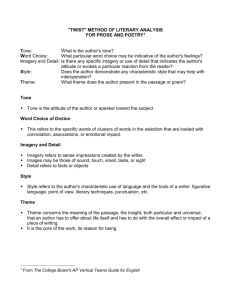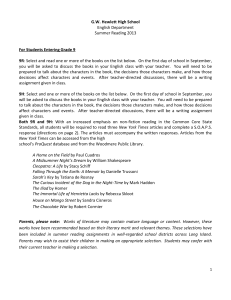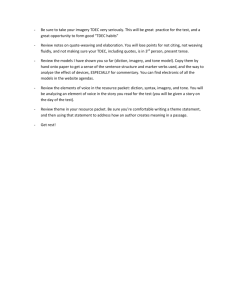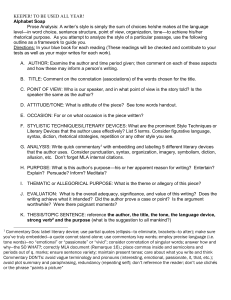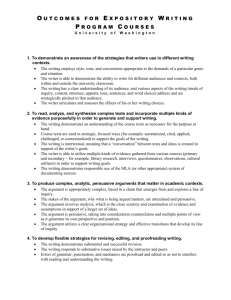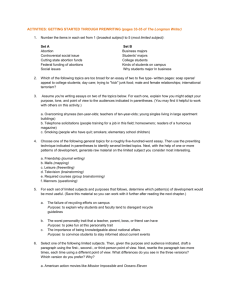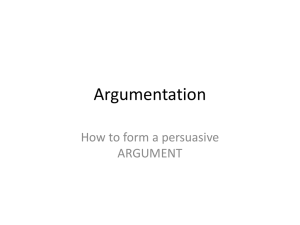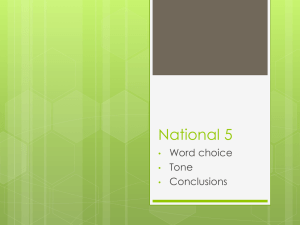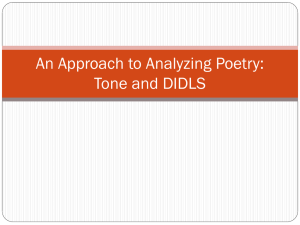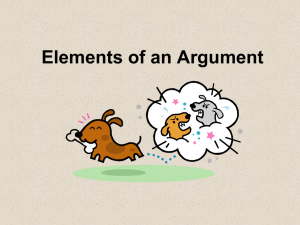Academic Vocab: Part 1
advertisement
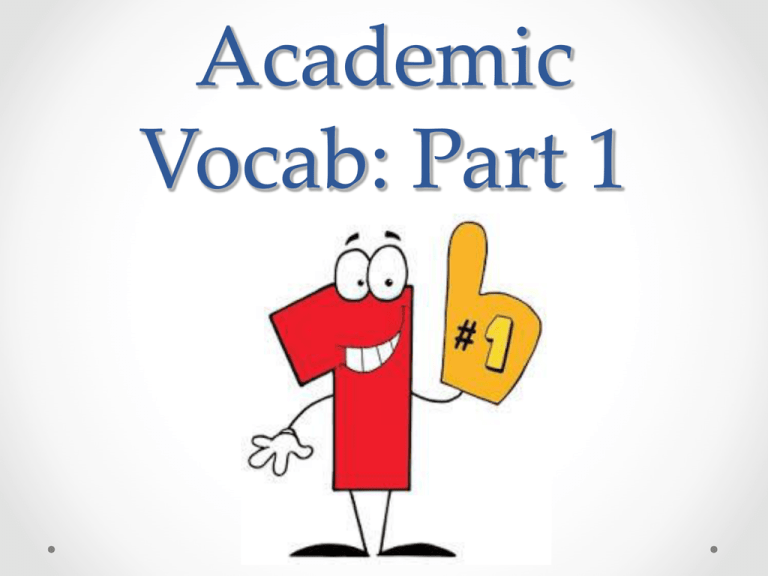
Academic Vocab: Part 1 Claim • A statement essentially arguable but used as a primary point to support or prove an argument is called a claim. • If somebody gives an argument to support his position, it is called making a claim. Different reasons are usually presented to prove why a certain point should be accepted as logical. Argument • A form of writing that presents a particular opinion or idea and supports it with evidence. Counter Claim • a claim made to offset another claim • A position taken by someone with an opposing viewpoint. Refutation • The reasoning used to disprove an opposing point. o Note the difference from counterclaim Concession • An admission in an argument that the opposing side has valid points. Conflict • A conflict is a literary element that involves a struggle between two opposing forces usually a protagonist and an antagonist. • Internal Conflicts • External Conflicts Culture • The shared set of arts, ideas, skills, customs, attitudes, and values that characterize a group of people, are passed on or taught to succeeding generations. • Age, music, language, ethnicity, history, art, etc. Perspective • A way of looking at the world or a mental concept about things or events. • Different people or characters may have a different perspective of the world or events. Tone • Tone, in written composition, is an attitude of a writer toward a subject or an audience. Tone is generally conveyed through the choice of words or the viewpoint of a writer on a particular subject. • Every written piece comprises a central theme or subject matter. The manner in which a writer approaches this theme and subject is the tone. The tone can be formal, informal, serious, comic, sarcastic, sad, and cheerful or it may be any other existing attitudes. Voice • The way a writer or speaker uses words and tone to express ideas as well as his or her personas. In groups of 3… • Create a poster to teach your term to the class. • You must have: o o o o Your term in large writing A definition in your own words An example of your term A visual representation of your term Academic Vocab Part #2 Allusion • an expression designed to call something to mind without mentioning it explicitly; an indirect or passing reference. Anaphora • The deliberate repetition of the first part of the sentence in order to achieve an artistic effect. Diction • style of speaking or writing determined by the choice of words by a speaker or a writer. • Formal or informal diction can change the effectiveness of any piece of writing. • Word choice Imagery • Imagery makes use of particular words that create visual representation of ideas in our minds. • Evokes the 5 senses. Metaphor • a figure of speech in which a term or phrase is applied to something to which it is not literally applicable in order to suggest a resemblance. • Comparison of 2 unlike things Simile • a figure of speech involving the comparison of one thing with another thing of a different kind, used to make a description more emphatic or vivid • Using like or as. Synthesis • Combining a number of different parts or ideas to come up with a new idea or theory. • An example of synthesis is when you read several books and use all of the information to come up with a thesis on the subject. Symbol • The use of symbols to signify ideas and qualities by giving them symbolic meanings that are different from their literal sense. • Generally, it is an object representing another to give it an entirely different meaning that is much deeper and more significant. Syntax • The arrangement of words and phrases to create well-formed sentences in a language. Theme • Main idea or an underlying meaning of a literary work that may be stated directly or indirectly.
